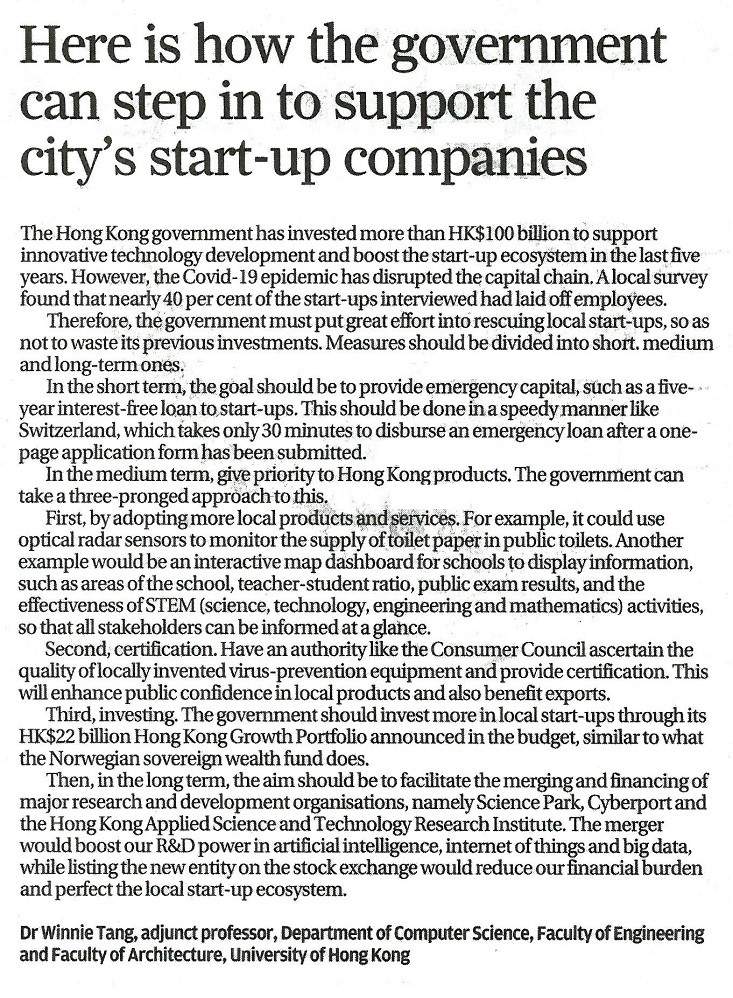網上版請按此

Here is how the government can step in to support the city's start-up companies
The Hong Kong government has invested more than HK$100 billion to support innovative technology development and boost the start-up ecosystem in the last five years. However, the Covid-19 epidemic has disrupted the capital chain. A local survey found that nearly 40 per cent of the start-ups interviewed had laid off employees.
Therefore, the government must put great effort into rescuing local start-ups, so as not to waste its previous investments. Rescue measures should be divided into short, medium and long-term.
In the short term, the goal should be to provide emergency capital, such as a five-year interest-free loan to start-ups. This should be done in a speedy manner like Switzerland, which takes only 30 minutes to disburse an emergency loan after the one-page application form has been submitted.
In the medium term, give priority to Hong Kong products. The government can take a three-pronged approach to this.
First, by becoming a user and adopting more local products and services. For example, it could use optical radar sensors to monitor the supply of toilet paper or the urea level in public toilets to ensure timely service without jeopardising privacy. Another example would be an interactive map dashboard for schools to display information, such as area of the school, teacher-student ratio, public exam results, and the effectiveness of STEM (science, technology, engineering and mathematics) activities, so that all stakeholders can be informed at a glance.
Second, certification. Have an authority like the Consumer Council ascertain the quality of locally invented virus-prevention equipment and provide certification. This will enhance public confidence in local products and also benefit their export.
Third, investing. The government should invest more in local start-ups through its HK$22 billion Hong Kong Growth Portfolio announced in the budget, similar to what the Norwegian sovereign wealth fund does. The world's largest sovereign fund has supported local start-ups through seed funds.
Then, in the long term, the aim should be to facilitate the merging and financing of major research and development organisations, namely Science Park, Cyberport and the Hong Kong Applied Science and Technology Research Institute. The merger would boost our R&D power in artificial intelligence, internet of things and big data, while listing the new entity on the stock exchange would reduce our financial burden and perfect the local start-up ecosystem.
Dr. Winnie Tang
Adjunct Professor, Department of Computer Science, Faculty of Engineering and Faculty of Architecture, The University of Hong Kong